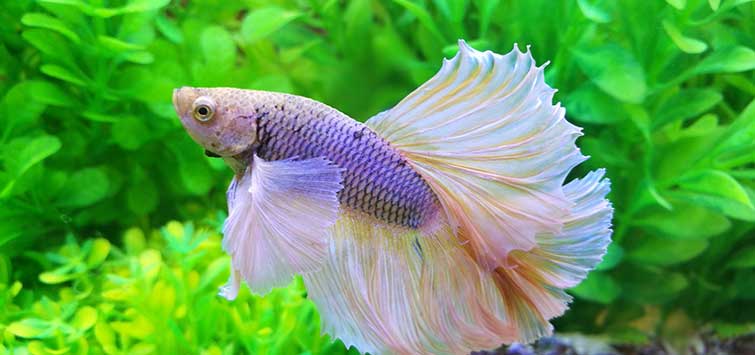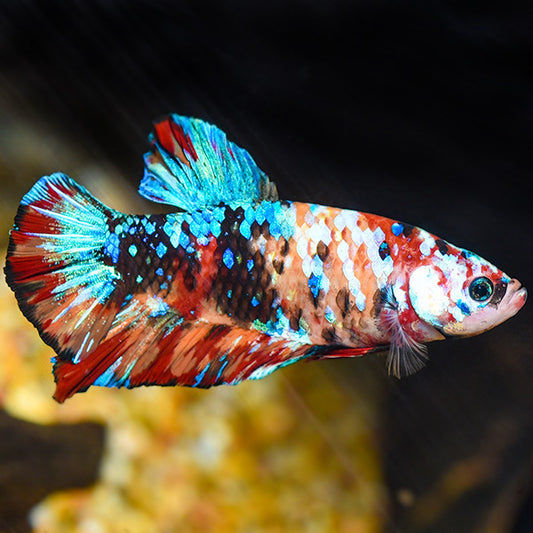Usual Betta Fish Illness and Just How to avoid Them
Usual Betta Fish Illness and Just How to avoid Them
Blog Article
The Ultimate Overview to Betta Fish Care: Important Tips for Preserving a Healthy And Balanced and Thriving Aquarium Atmosphere
Effective Betta fish treatment requires a thorough understanding of their one-of-a-kind ecological and physical demands. Developing an ideal aquarium begins with choosing the right container size and ensuring optimum water problems, which are critical for the wellness and well-being of your Betta. In addition, understanding appropriate feeding methods and creating a favorable environment can dramatically affect your fish's vitality and actions. As you think about these foundational facets, it ends up being clear that preserving a thriving fish tank atmosphere requires focus to detail and ongoing dedication. What particular strategies will you apply to improve your Betta's lifestyle?
Picking the Right Storage Tank
Selecting the suitable container for your Betta fish is crucial to ensuring its wellness and well-being. Bettas grow in environments that mimic their all-natural environments, which usually include tranquility, warm waters. A tank size of a minimum of five gallons is recommended to offer ample swimming area, as smaller sized storage tanks can bring about anxiety and health and wellness problems for these vibrant fish.
When picking a container, consider the tank's shape and filtering system. A rectangle-shaped container is better to a dish, as it offers more surface for oxygen exchange. Additionally, a trustworthy purification system is necessary to maintain water quality and minimize the frequency of water changes (betta fish). It's important to pick a filter with a gentle flow, as Bettas are not strong swimmers and may struggle versus solid currents.
Temperature law is an additional crucial element; Bettas prefer water temperature levels between 76 ° F and 82 ° F. Investing in an excellent heating unit will make certain that the water stays within this range, advertising a healthy and energetic way of life for your Betta. Lastly, giving proper tank decors and hiding places will help in reducing stress and urge natural behaviors, better enhancing your Betta's health.
Keeping Water Top Quality
Preserving optimum water quality is important for the wellness and longevity of Betta fish. This needs normal monitoring of different criteria, including temperature, pH, ammonia, nitrite, and nitrate degrees. Bettas grow in temperatures in between 76 ° F and 82 ° F, so keeping a stable temperature is vital. Sudden changes can cause stress and disease.
Routine testing making use of a trusted water screening package can assist make sure these specifications stay within the ideal ranges. Ammonia and nitrite levels should constantly be at 0 ppm, as also reduced focus can be toxic to Betta fish.
Regular water modifications are vital to keeping water top quality. It is suggested to change 25-50% of the storage tank water weekly, relying on the container size and stocking degrees. Utilizing a premium water conditioner can aid remove dangerous chemicals from faucet water, ensuring a secure environment. In addition, including a robust filtration system can aid in maintaining water clearness and quality, giving a much healthier habitat for your Betta fish.
Ideal Feeding Practices
Offering a well balanced diet plan is critical for the health and wellness and dynamic pigmentation of Betta fish, as their dietary needs play a significant duty in their general More hints well-being. Betta fish are carnivorous naturally, requiring a diet regimen high in protein. A mix of top notch pellets, icy or live foods such as bloodworms, salt water shrimp, and daphnia can provide the necessary nutrients they need.
Feed your Betta fish 2 to three times a day, supplying just what they can consume within 2 to 3 mins to avoid overfeeding and maintain water high quality. Overfeeding can result in weight problems and health and wellness problems, including swim bladder condition. It is necessary to monitor their nutritional intake and change part dimensions as necessary.
Along with healthy protein, a well balanced diet regimen ought to include minerals and vitamins to promote ideal wellness. Think about supplementing their diet plan with high-quality flakes or pellets particularly formulated for Betta fish, as these commonly have necessary additives.

Developing an Ideal Habitat

Water high quality is extremely important; maintain a temperature in between 76 ° F and 82 ° F, and make certain the pH level varies from 6 - betta fish.5 to 7.5. Normal water adjustments of 25-50% weekly will certainly assist keep toxins at bay and make certain a secure atmosphere
Integrating plants and hiding areas is critical, as Betta fish are naturally territorial and enjoy having areas to explore and retreat. Live or silk plants, along with caves and accessories, can create a revitalizing environment.

Regular Wellness Checkups
Carrying out regular health checkups is crucial for guaranteeing the health of Betta fish, as early detection of possible issues can protect against major health issue. These checkups should encompass a comprehensive assessment of the fish's physical problem, behavior, and ecological elements.
Begin by observing the Betta fish for any indications of distress, click such as sleepiness, anorexia nervosa, or uncommon swimming patterns. In addition, examine the fins and body for indications of discoloration, lesions, or fin rot, which can more indicate infections or bloodsuckers. Consistently keeping track of the water high quality in the fish tank is similarly essential; specifications such as pH, ammonia, nitrite, and nitrate levels ought to be maintained within optimum arrays to prevent tension and ailment.
Furthermore, think about maintaining a log of health and wellness monitorings and water high quality tests. This document can help with the recognition of patterns or repeating problems. If any type of irregularities are detected during the examination, it is necessary to consult a veterinarian experienced in aquatic animals. Timely intervention can make a significant difference in the recuperation of your Betta fish, ensuring a long and healthy life in a well-maintained aquarium environment.
Final Thought
Finally, successful Betta fish treatment rests on creating and keeping an optimum fish tank environment. Key factors include picking an appropriately sized storage tank, making certain constant water quality, sticking to perfect feeding techniques, and creating a habitat that minimizes stress and anxiety. Routine wellness check-ups are necessary for early discovery of possible concerns. By complying with these guidelines, aquarists can advertise the well-being and vibrancy of Betta fish, eventually causing a flourishing aquatic ecosystem.
Report this page